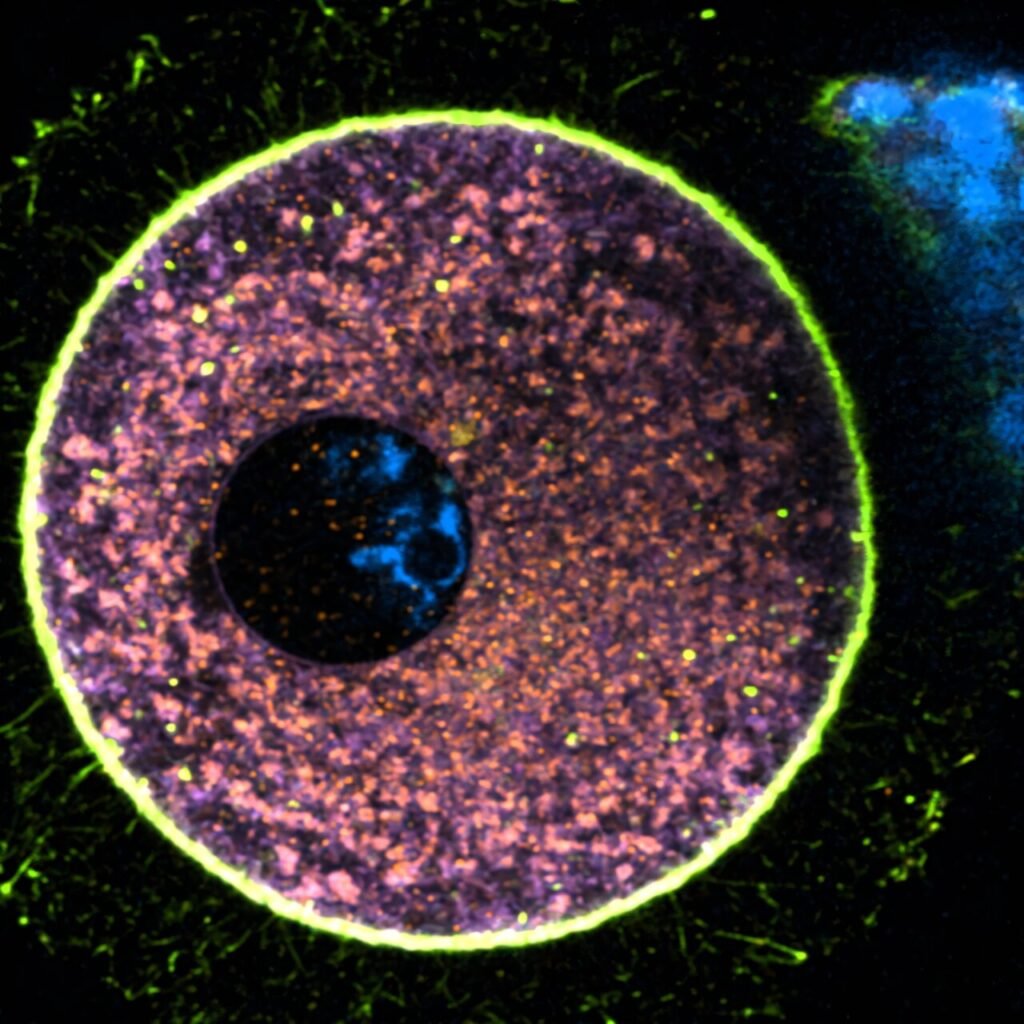Human eggs are known for their incredible patience, lying dormant for decades until they are needed for reproduction. A recent study published in The EMBO Journal sheds light on a fascinating aspect of these cells – their ability to slow down their internal waste disposal systems as they mature. This deliberate slowdown in activity is believed to be an evolutionary mechanism designed to keep their metabolism low and protect them from damage.
Dr. Elvan Böke, the corresponding author of the study and Group Leader at the Center for Genomic Regulation (CRG) in Barcelona, explains that the research involved examining over a hundred freshly donated eggs, making it the largest dataset of its kind. The findings revealed a minimalist strategy employed by the cells to stay pristine for many years. Women are born with millions of immature eggs, but only a fraction of these remain by the time they reach menopause. Each egg must remain healthy and undamaged for up to five decades before it can be fertilized and support a pregnancy.
Protein recycling is a crucial process in cells, with lysosomes and proteasomes serving as the main waste disposal units. However, these processes require energy and can lead to the production of harmful reactive oxygen species (ROS) that can damage cellular components. The study suggests that by slowing down the recycling process, the eggs can minimize ROS production while still maintaining essential housekeeping functions.
The researchers used fluorescent probes to track lysosome, proteasome, and mitochondrial activity in live human eggs collected from healthy donors. The results showed that these activities were significantly lower in the eggs compared to the surrounding support cells, and decreased even further as the eggs matured. Interestingly, the eggs were observed to release lysosomes into the surrounding fluid and relocate mitochondria and proteasomes to the cell’s outer rim as they approached ovulation, indicating a unique “spring cleaning” mechanism.
This study is significant as it is the largest-scale investigation of healthy human eggs collected directly from women, rather than artificially ripened eggs typically used in laboratory research. The findings could have implications for improving the success rates of in vitro fertilization (IVF) procedures worldwide. The researchers suggest that maintaining the naturally low metabolic activity of eggs could be more beneficial than trying to enhance their metabolism with supplements.
Moving forward, the team plans to examine eggs from older donors and failed IVF cycles to determine if the cellular waste disposal mechanisms become less effective with age or in the presence of disease. This research opens up new possibilities for understanding and potentially enhancing the quality of human eggs for fertility treatments.
For more information, the study titled “The proteostatic landscape of healthy human oocytes” can be accessed in The EMBO Journal. The research was conducted by the Center for Genomic Regulation in Barcelona, Spain.
As this document is subject to copyright, reproduction without permission is prohibited for private study or research purposes. The content provided is for informational purposes only and should be cited accordingly.


